Synopsis
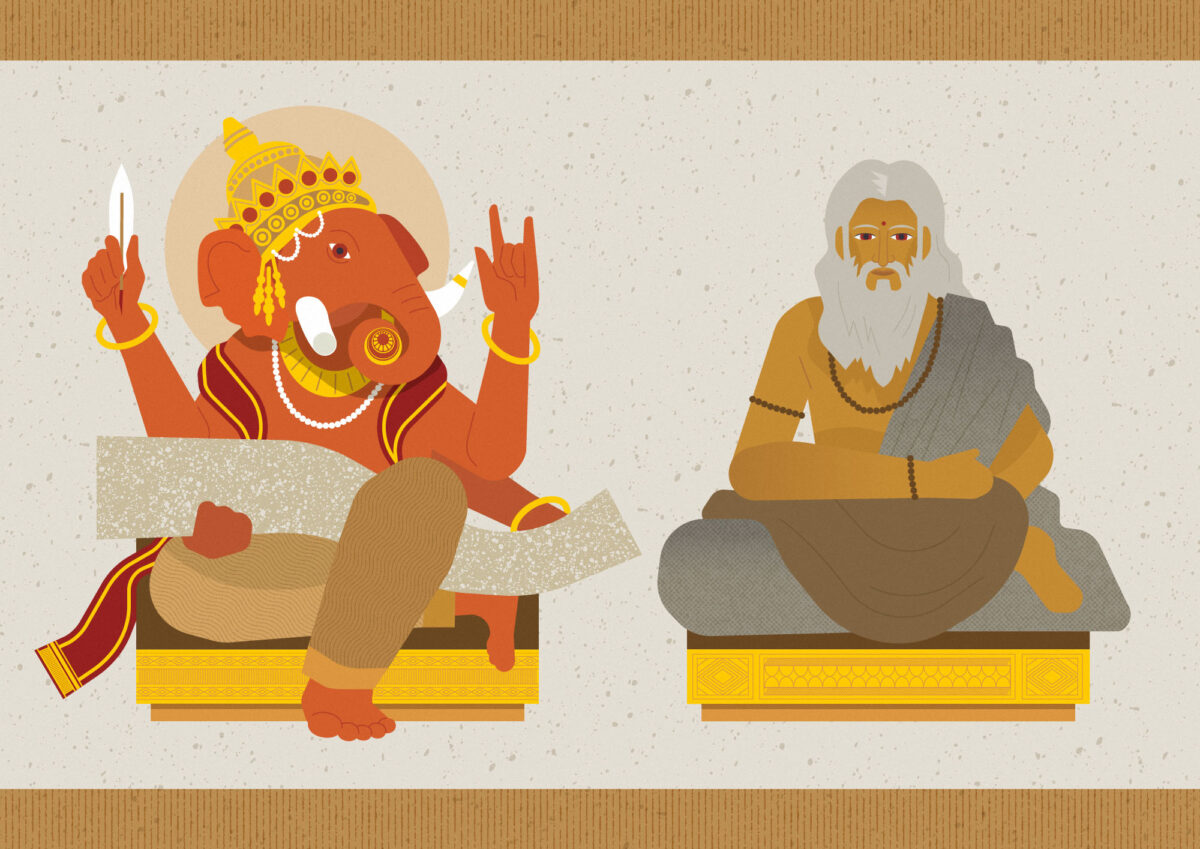
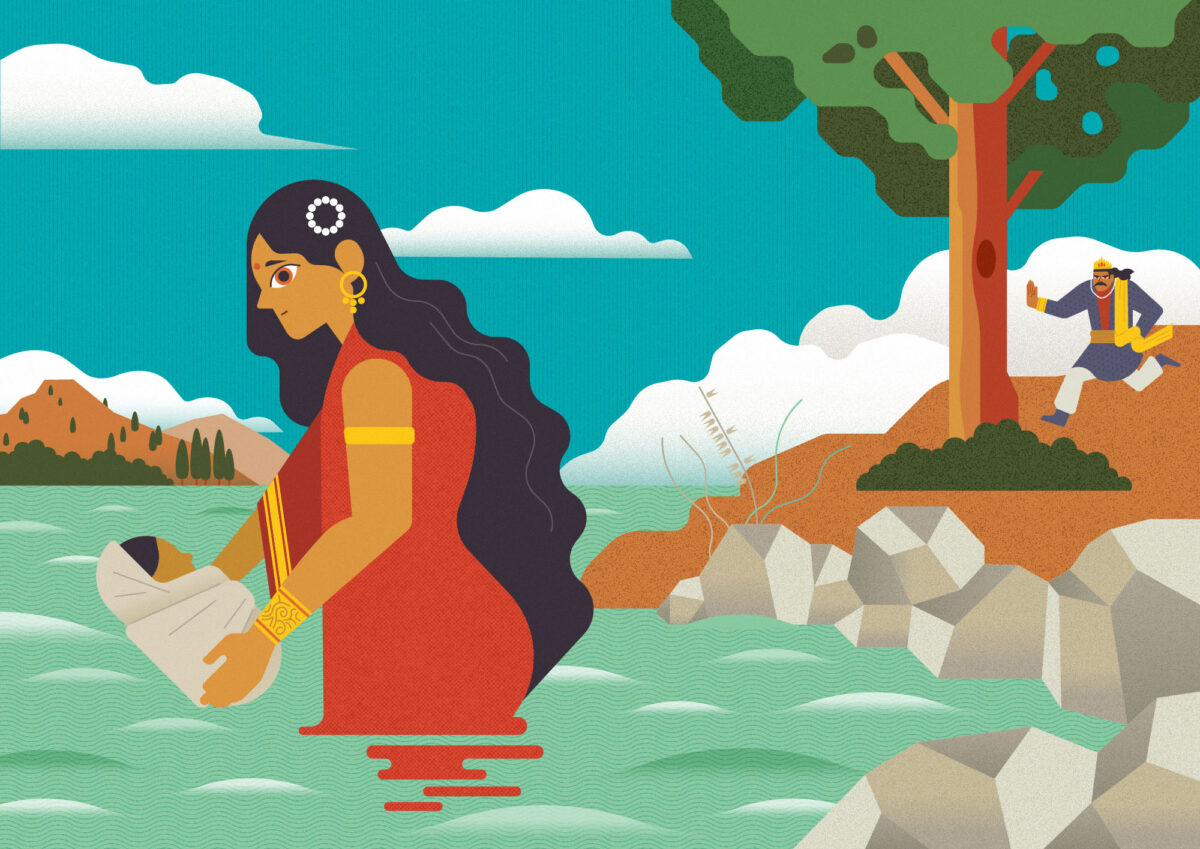
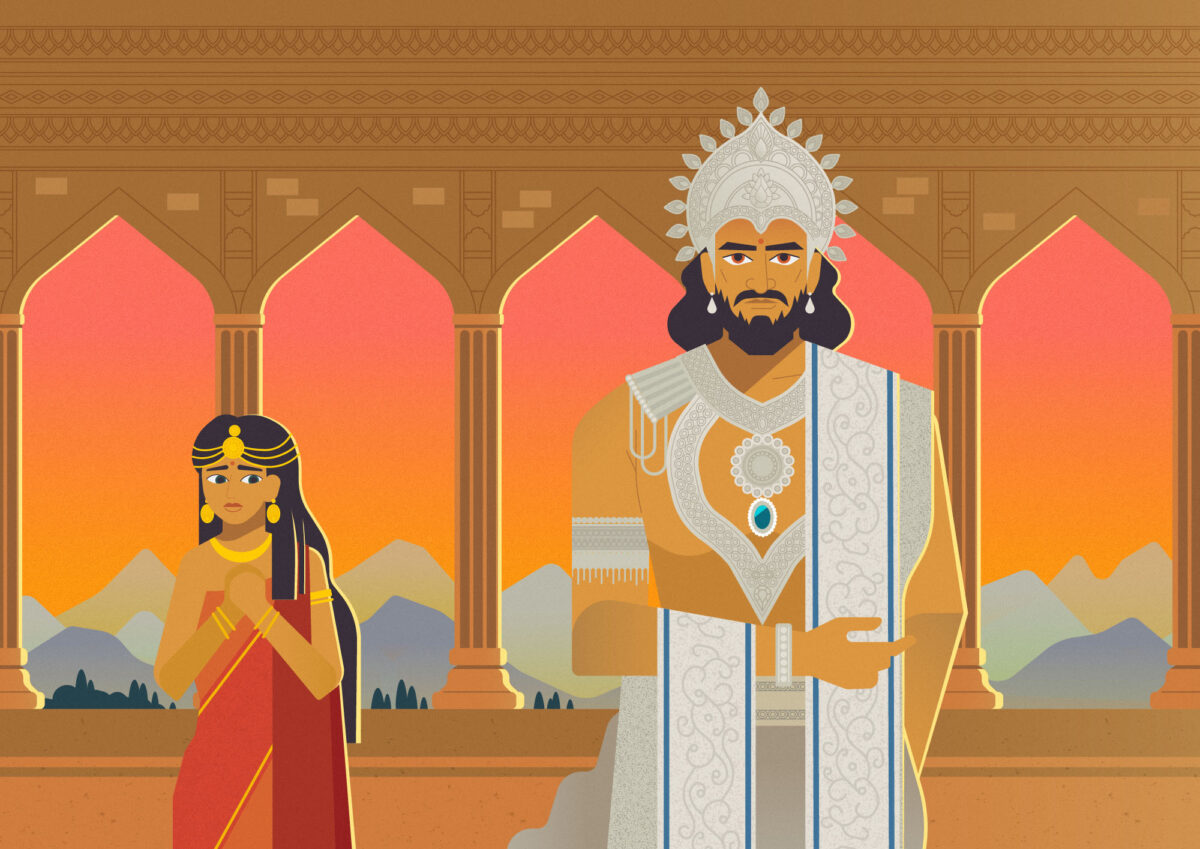
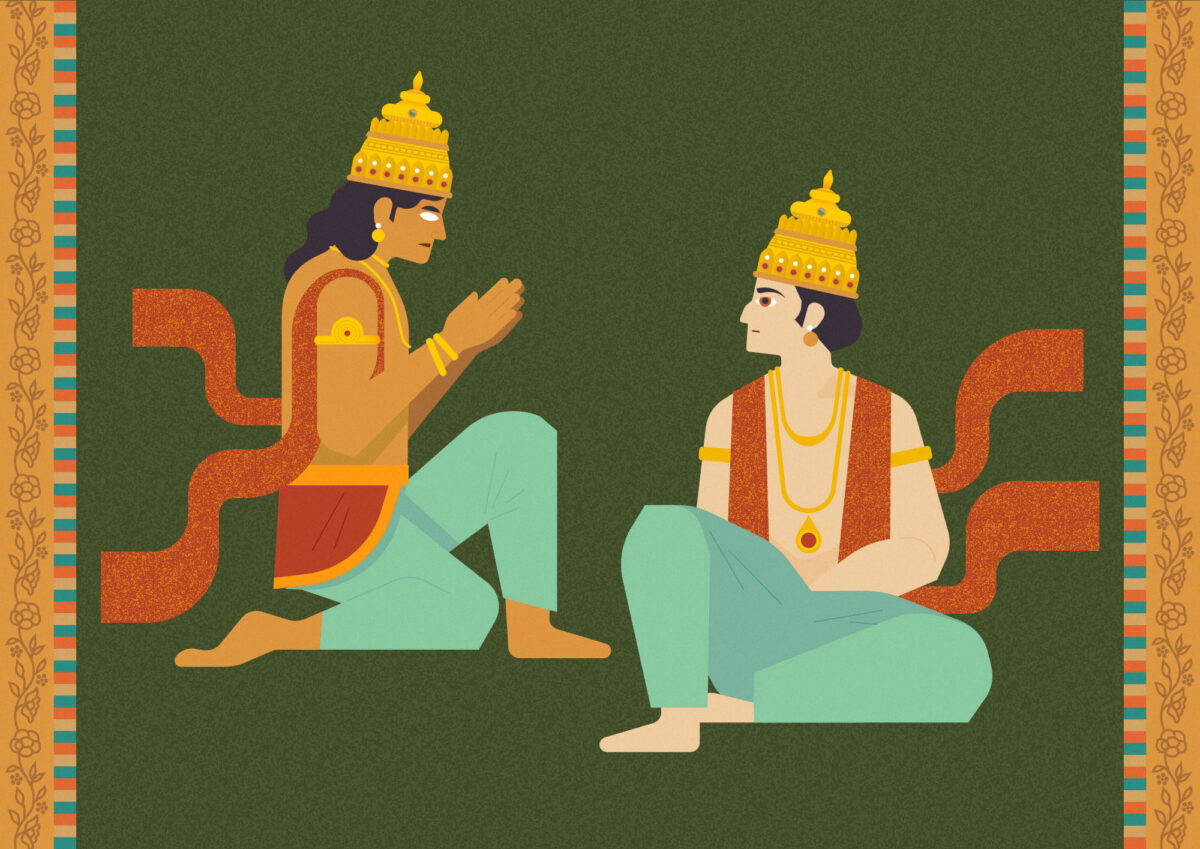
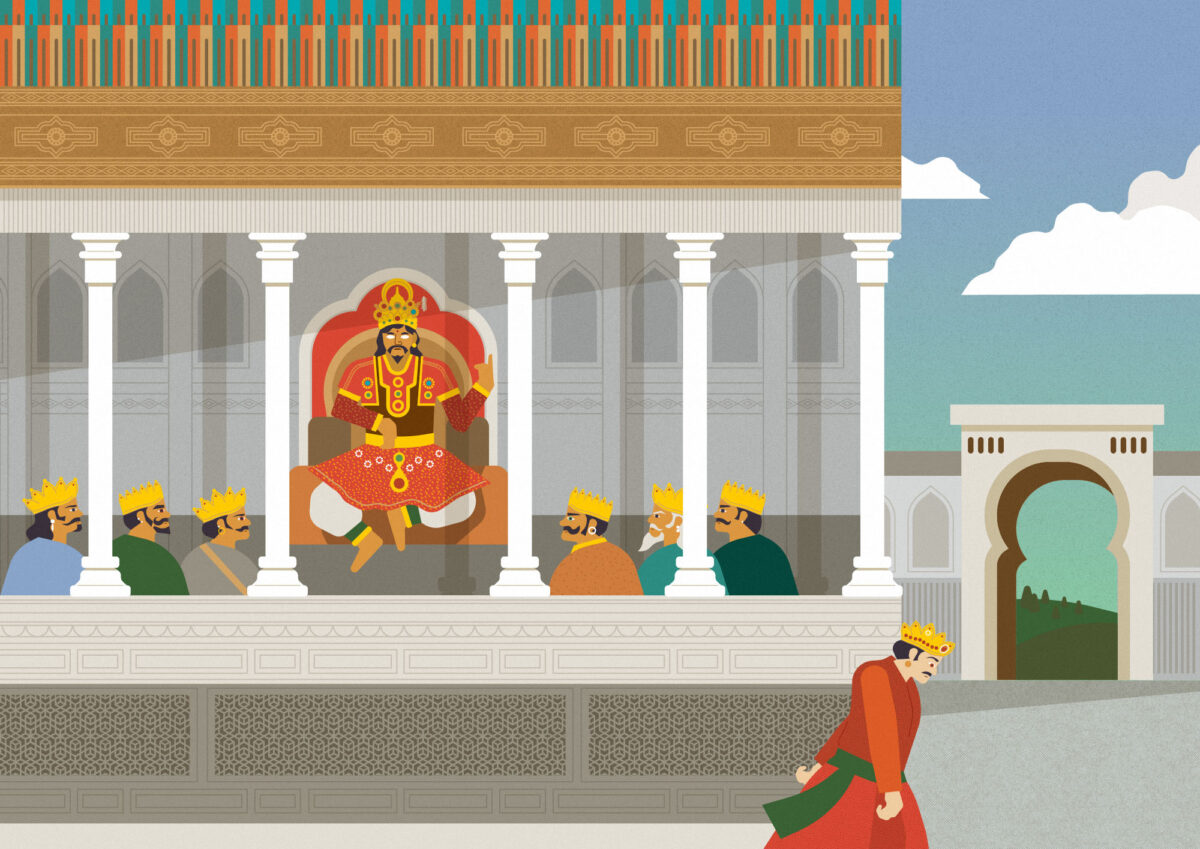
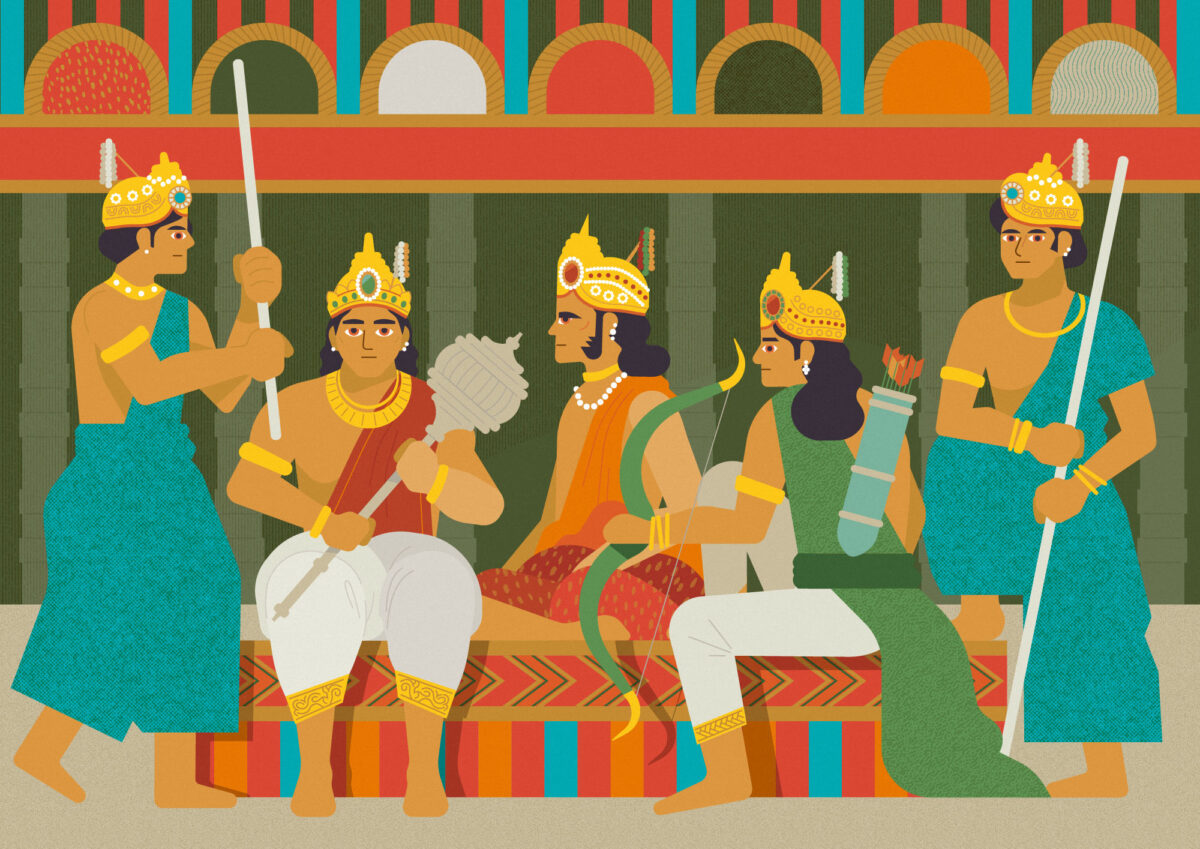
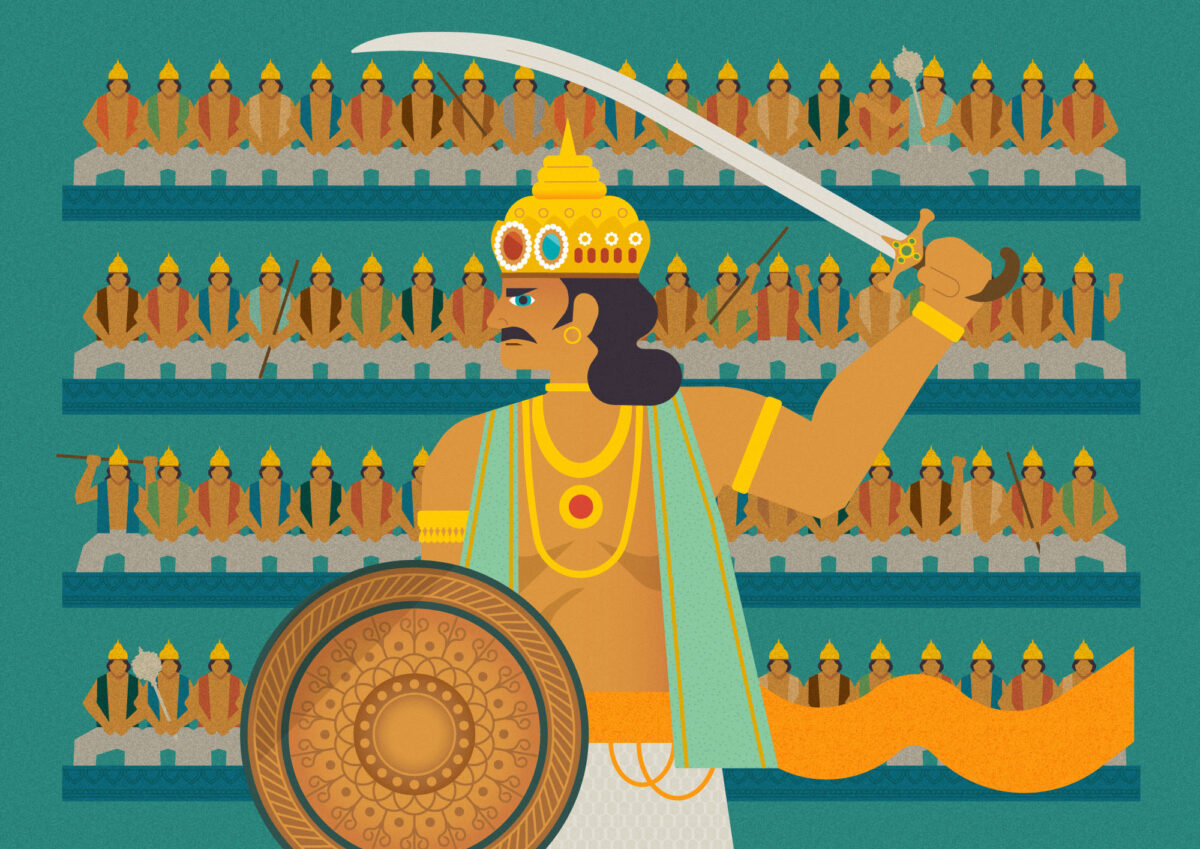
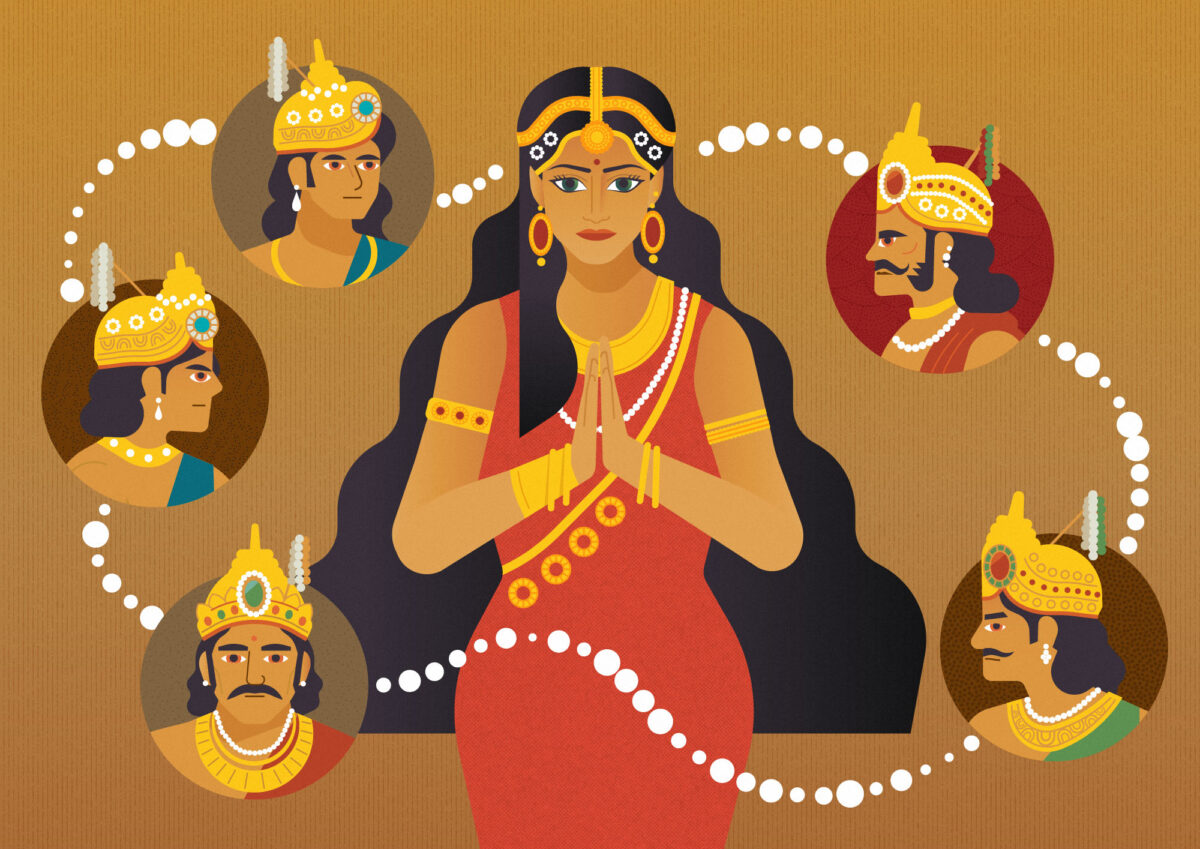
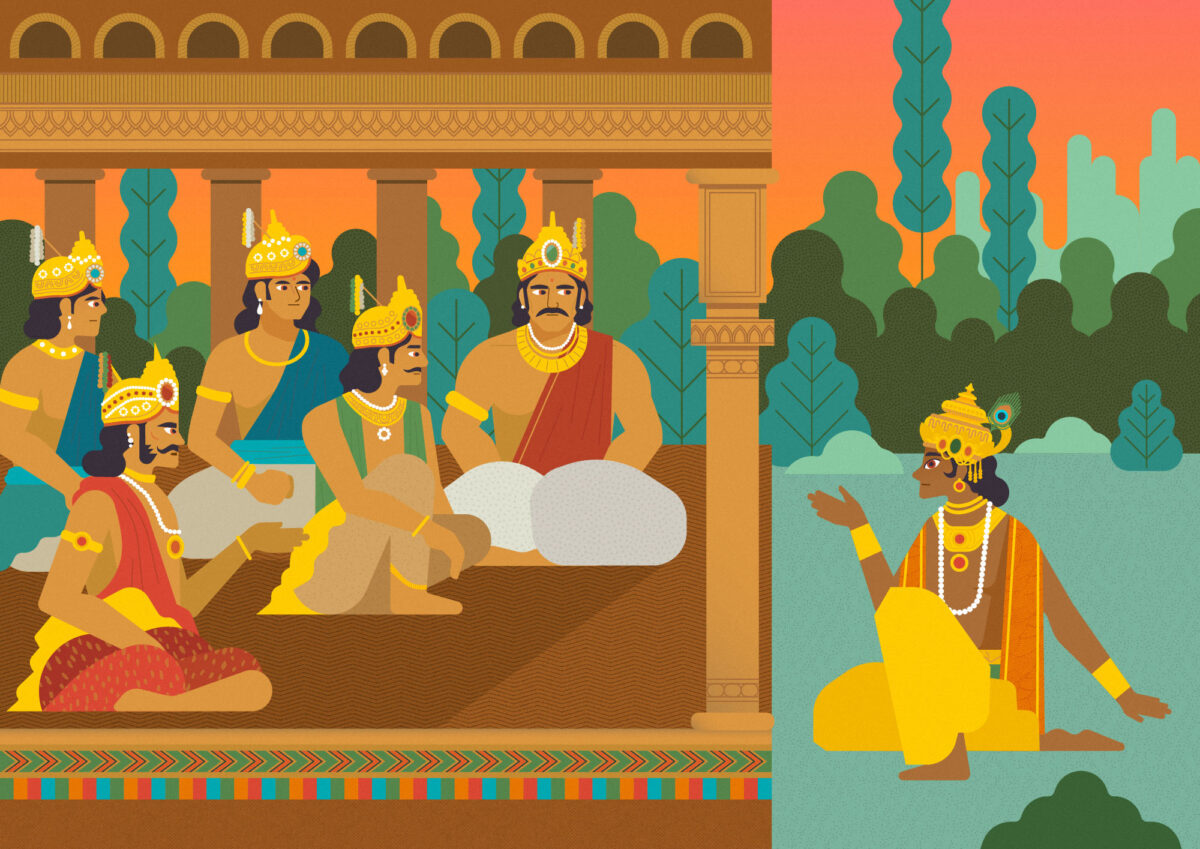
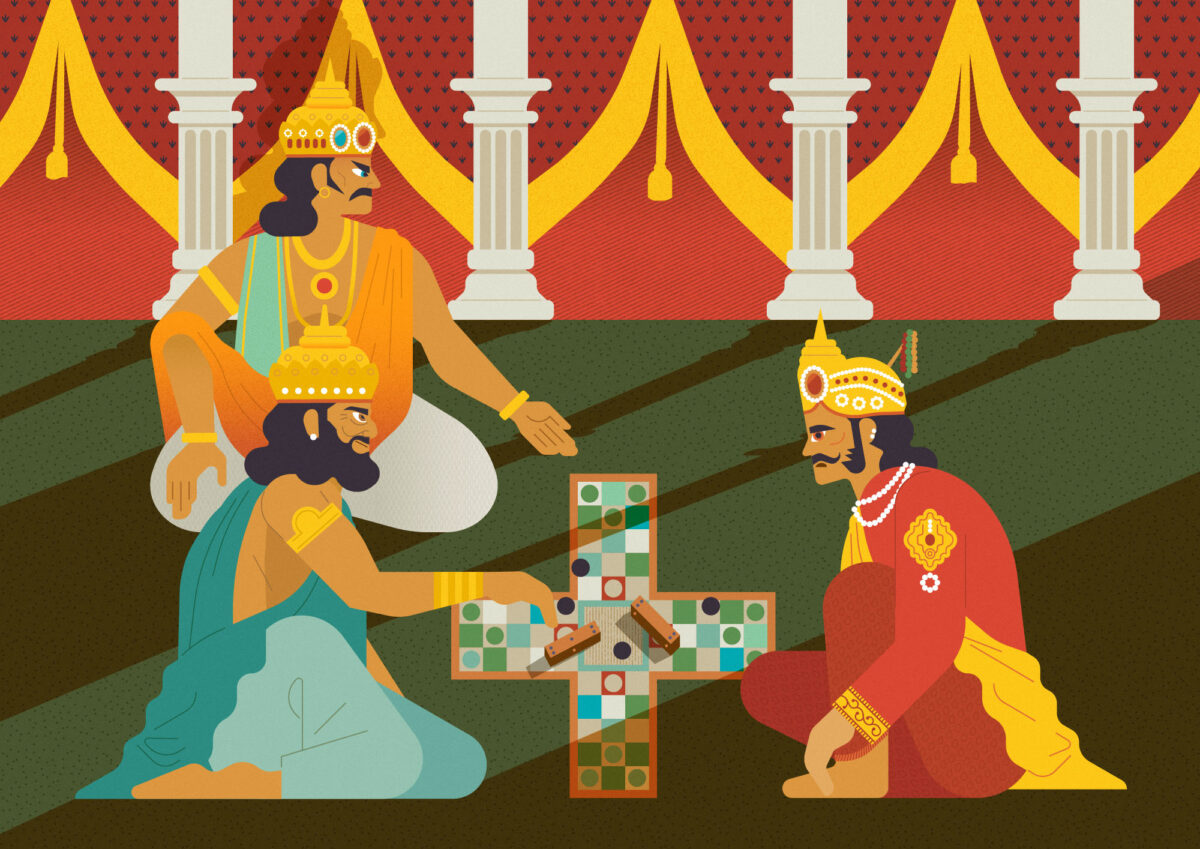
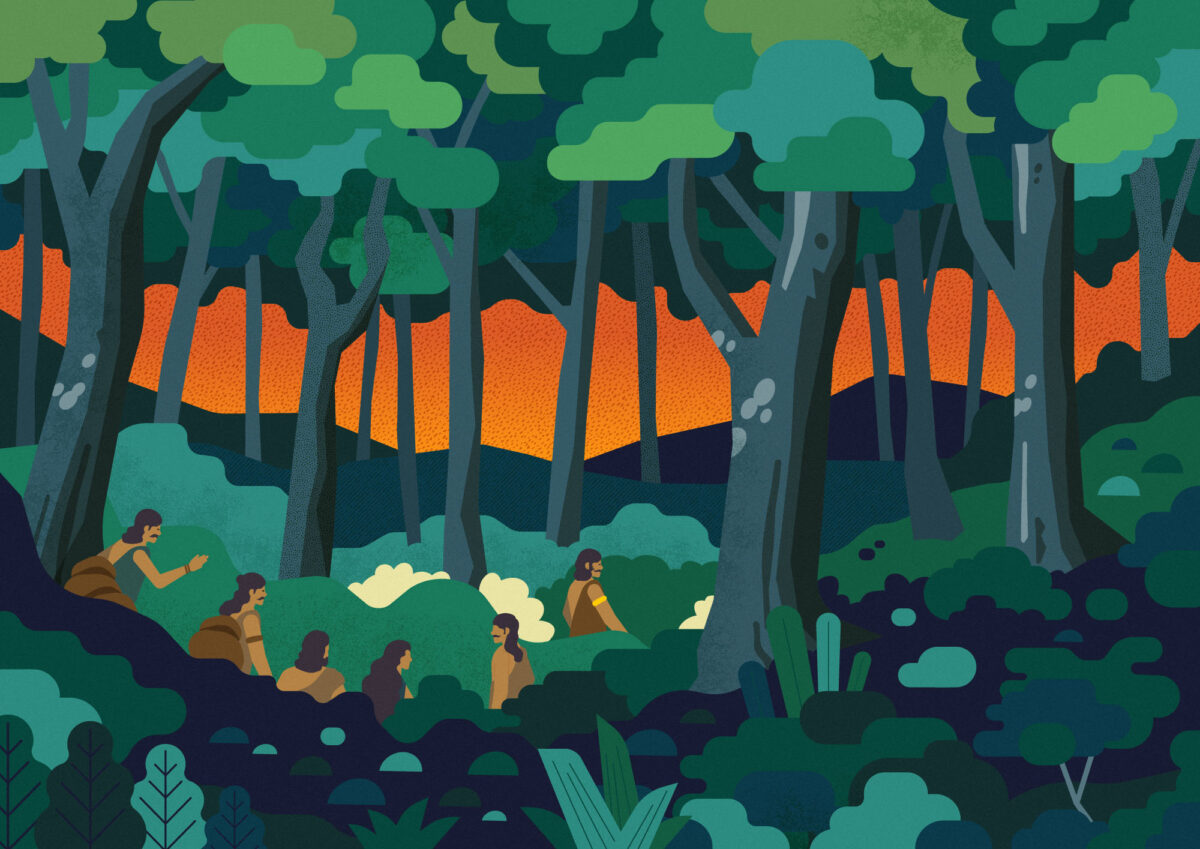
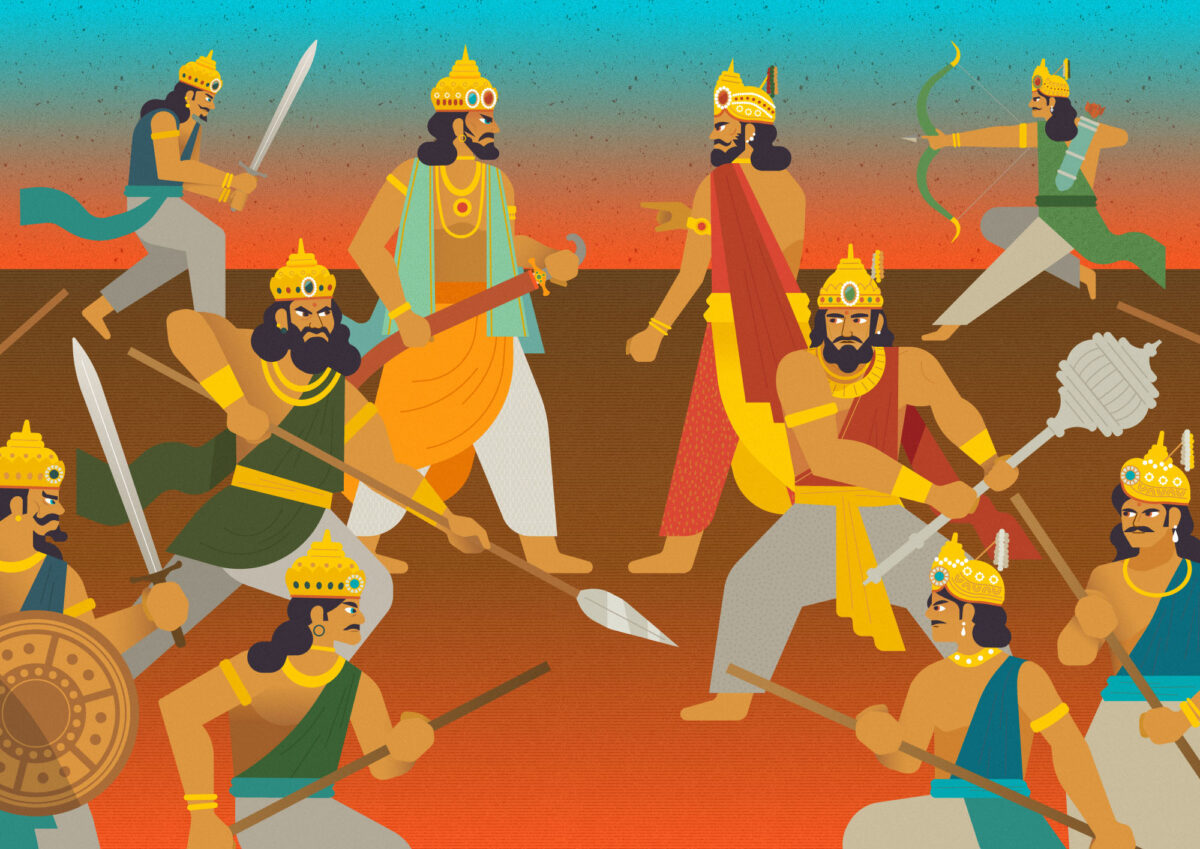
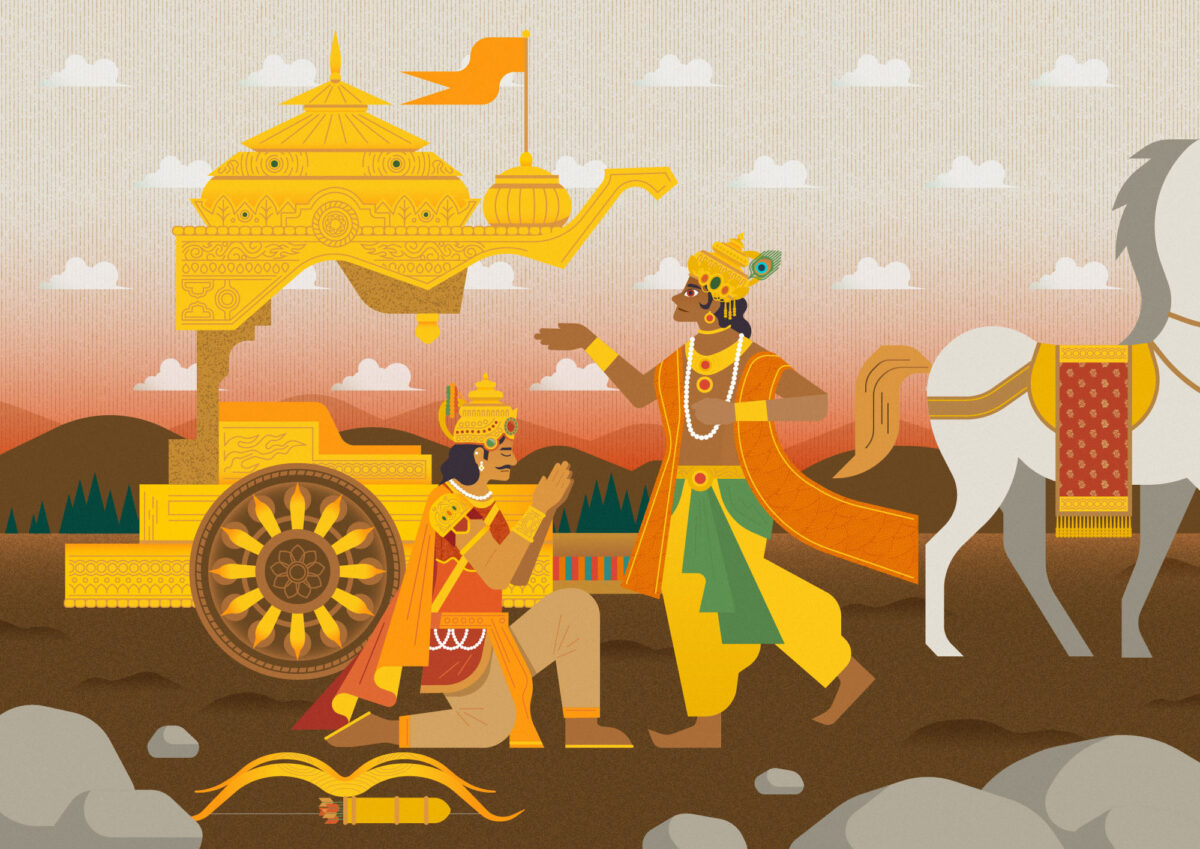
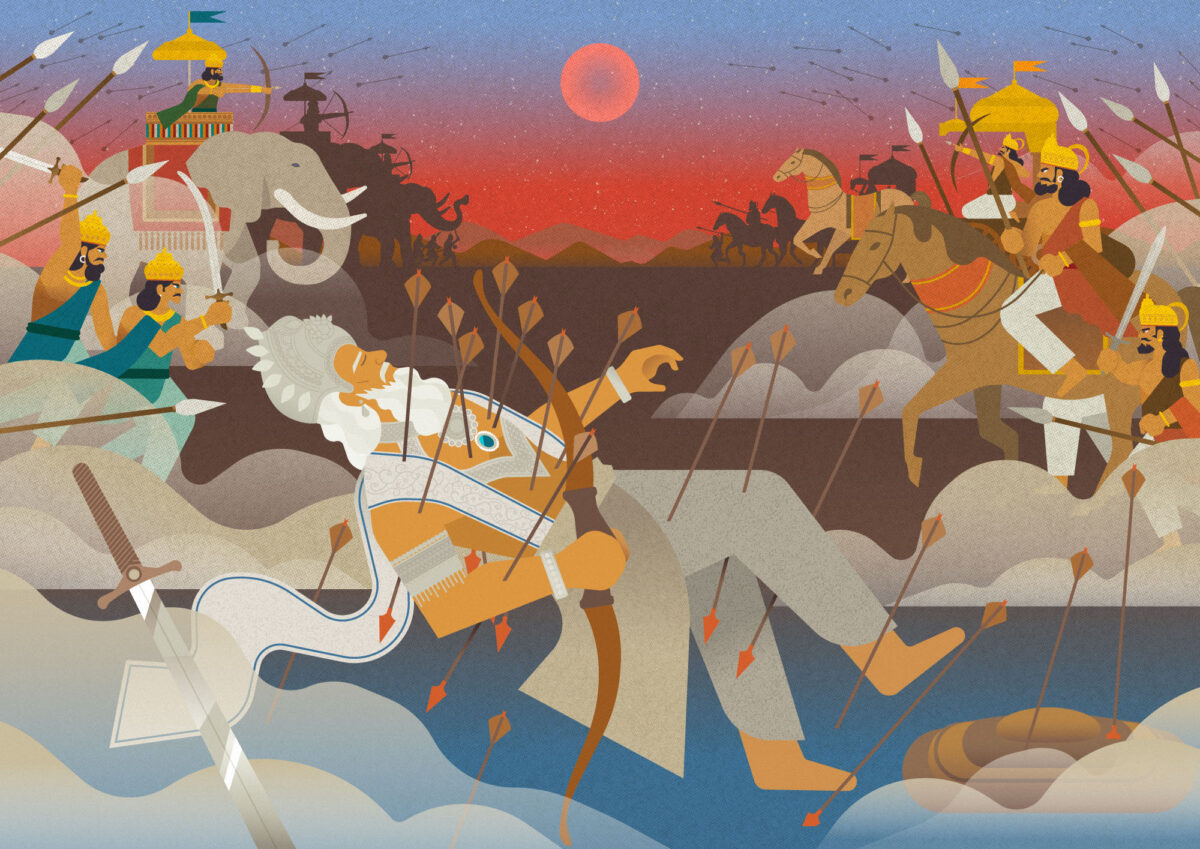
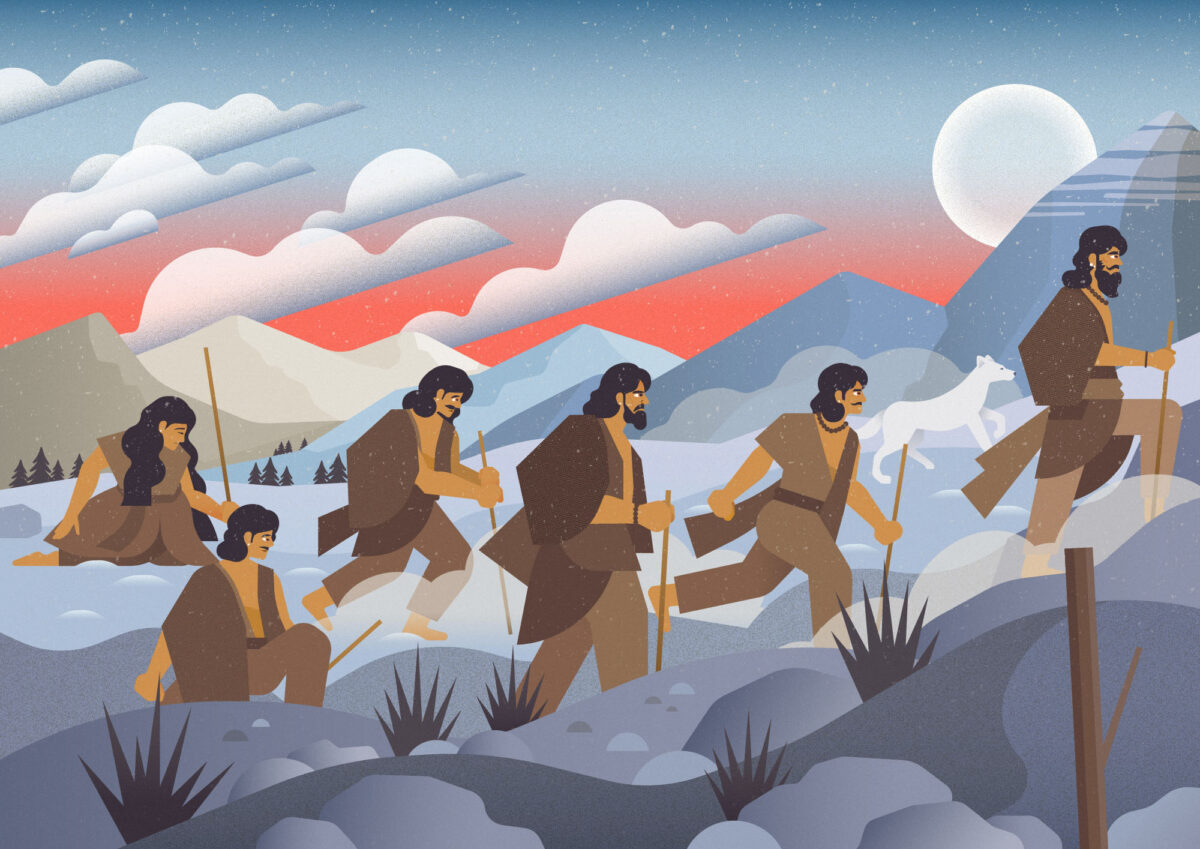
1
The story of Mahabharata had been told many times, and by different people. Under the dictation of Vyasa, it was first written down by God Ganesha (the God with an elephant-head). Then the story was narrated again by Vaisampayana (a sage, and a disciple of Vyasa) to King Janamejaya (the great-grandson of Arjuna the Pandava prince). The story was spread for the third time when Ugrasrava Sauti (a storyteller) told it to a group of sages in the Naimisa Forest while the latter were conducting a sacrifice that lasted for 12 years for King Saunaka Kulapati.
2
The story began with King Shantanu of the Kuru Dynasty. Shantanu asked Ganga to marry him. Ganga agreed, on condition that Shantanu would never challenge her actions. Ganga, the river goddess, had a mission: she was supposed to liberate eight souls by giving birth to them and then let them die in water. For the first seven souls, things went according to her wish. However, when she was about to drown Bhishma, the eighth son of her and King Shantanu, the latter forbade her for doing so. Ganga, seeing that Shantanu had broken his promise, went back to heaven with the child, leaving the King behind. Shantanu continued to rule, and that was a golden age. One day Bhishma returned. Shantanu was very happy to have this perfect son. Meanwhile, Shantanu fell for the scent of one Satyavati, a fisherwoman. He asked her to marry her. Satyavati's father accepted the proposal on the condition that her son would inherit the throne. At first Shantanu demurred, because he already had Bhishma. But then Bhishma interceded, by relinquishing his right. Bhishma swore to give up the throne and abjure women. In recognition of his vow, he was given the power to live forever unless he chose to die.
3
Shantanu and Satyavati’s son, Vichitravirya, was weak, but Bhishma, who did not break his promise of abjuring women, fought for the little king and brought three wives back: Amba, Ambika, and Ambalika. Scared of Bhishma’s strength and wrath, Ambika and Ambalika married Vichitravirya, but Amba refused to marry and cursed Bhishma to witness the destruction of the entire Kuru Dynasty.
4
Vichitravirya died without any heir, Satyavati sought the help of Vyasa, her firstborn (out-of-wedlock) son with a Brahmin (priest) before her marriage to Shantanu, to have children with the princesses so that their race could continue. Their two sons with the two princesses were Dhritarashtra the blind and Pandu the Pale. Vyasa also had a son, Vidura, with a maid. Vidura later became the prime minister of the Kuru Dynasty.
5
Twenty years later, Pandu, despite being younger, became king because the blind Dhritarashtra was not considered fit to rule. Pandu married Kunti and Madri. However, he was cursed to death if he made love to women because he shot down two copulating gazelles. Pandu went into exile, and Dhritarashtra became king. Pandu mourned for a life without children, so much that he was willing to offer Kunti to another man. Kunti revealed she had a mantra allowing her to have children with gods. At that time Kunti had already given birth to Karna, an out-of-wedlock son with sun god Surya, and abandoned him. She kept this secret all through her life.
6
Kunti now evoked the god of Dharma, and then Vayu, god of the wind, and then Indra, king of gods, giving birth to Yudhishthira, Bhima, Arjuna. Madri evoked the Ashwins, the twin gods with golden eyes, giving birth to Nakula, and Sahadeva. The five brothers were usually referred to as the Pandavas. Pandu died because he failed to resist the beauty of Madri who, in a regret, followed his steps, leaving Kunti to take care of the five Pandavas.
7
Meanwhile, Dhritarashtra was ready to marry Gandhari. Gandhari found out about his blindness only shortly before their wedding. She put a band on her eyes to show her loyalty to her husband. Instead of carrying a child, she carried a metallic ball of flesh in her womb, which she cut and gave birth to her one hundred sons and one daughter (collectively called the Kauravas). That’s how they had their eldest son Duryodhana, Hard to Conquer – who came to destroy.
8
Another twenty years passed. Bhishma raised the children together, and Drona, a Brahmin turned Kshatriya (warrior) was royal preceptor to the Kauravas and Pandavas. Arjuna happened to be Drona’s most beloved student and was named “the best archer”. However, the children kept fighting with one other. Karna, now grown up as the ‘son’ of a charioteer, came to challenge Arjuna and became a friend of Duryodhana. Arjuna won a woman in a tournament. On his mother’s order, he needed to share the woman with all his brothers. Their wife was Draupadi, the paragon of women.
9
The Pandavas were given a portion of the kingdom, the land of Khandava-Prastha. Krishna, being the reincarnation of Lord Vishnu, entered the scene as the cousin of the Pandavas. He said he had heard the complaint of the earth, about the arrogance of men. They wanted a king who was calm and just – Yudhishthira. Yudhishthira was asked to be king of kings. He did not want the title because he wanted to avoid war with his uncle and cousins. However, Yudhishthira did eventually become the king of kings. Meanwhile, Arjuna fell in love with Krishna’s sister, Subhadra, who gave birth to a son, Abhimanyu, who later became a hero in the War against the Kauravas.
10
Duryodhana was furious about the respect earned by Yudhishthira. Sakuni, Gandhari’s brother, revealed that Yudhishthira loved gambling, yet he did not know how. This was Yudhishthira’s weakness. They challenged Yudhishthira to a game of dice. Yudhishthira lost everything. The Pandavas were cast out into the forest for 12 years and had to remain incognito for the 13th year in order to get back their lost land.
11
Night and forest were on the side of the Pandavas. Exile had strengthened them. During the period of exile, Arjuna was given the absolute weapon – Pasupata – by Lord Siva. In the forest, when asked by Draupadi why he always proposed peace and forgiveness, Yudhishthira said he played dice to take away Duryodhana’s kingdom. Meanwhile, Bhima fell in love with Hidimbi, a Rakshasa (demon), who gave birth to a son, Ghatotkatcha, who later sacrificed himself for the victory of the Pandavas in the War against the Kauravas.
12
The Pandavas’ stay in the wood was coming to an end. In their 13th year, in their disguises, the Pandavas helped King Virata win a battle against Duryodhana. Duryodhana said the Pandavas had broken the pact and they needed to stay in the forest for another twelve years. War seemed to be inevitable. Duryodhana and Arjuna both asked Krishna to be their ally. Krishna said that he would only take a non-combatant role. After giving his army to the Kauravas, he agreed to be the charioteer for Arjuna.
13
Bound by their duties, Bhishma and Drona had to fight for the Kauravas. Arjuna realised that he was bringing death to his family and his teacher on the battlefield. He threw down his bow and arrows. Krishna told Arjuna that renunciation was not enough. He taught Arjuna the ancient yoga of wisdom and the mysterious path of dharma, thereby clearing up his doubts. This teaching was materialised as the Bhagavad Gita, one of the most important ancient scriptures on spiritual enlightenment.
14
Kunti revealed to Karna that he was her son in order to stop him from helping the Kauravas. The hateful Karna refused but he promised her that he would only kill Arjuna, but not her other sons, so that she would still have five sons at the end of the war.
Trying to win, both sides used treachery and destructive weapons, violating the rules of war. The battle lasted for 18 days, causing immense casualties. Drona, Karna and all the Kauravas were killed one after the other, while Bhishma was heavily wounded because he consented to be attacked by a soldier called Sikhandin who was in fact the reincarnated Amba who had chosen to die in order to obtain the power of revenge against Bhishma. The Pandavas won. Before Bhishma died, he initiated Yudhisthira to the important rules of being a good king.
Trying to win, both sides used treachery and destructive weapons, violating the rules of war. The battle lasted for 18 days, causing immense casualties. Drona, Karna and all the Kauravas were killed one after the other, while Bhishma was heavily wounded because he consented to be attacked by a soldier called Sikhandin who was in fact the reincarnated Amba who had chosen to die in order to obtain the power of revenge against Bhishma. The Pandavas won. Before Bhishma died, he initiated Yudhisthira to the important rules of being a good king.
15
Dhritarashtra, Gandhari and Kunti retreated to the forest and died there.
Not long after Yudhishtira became King, he, followed by his brothers and Draupadi, left his kingdom for the Himalayas for his final salvation.
Not long after Yudhishtira became King, he, followed by his brothers and Draupadi, left his kingdom for the Himalayas for his final salvation.




